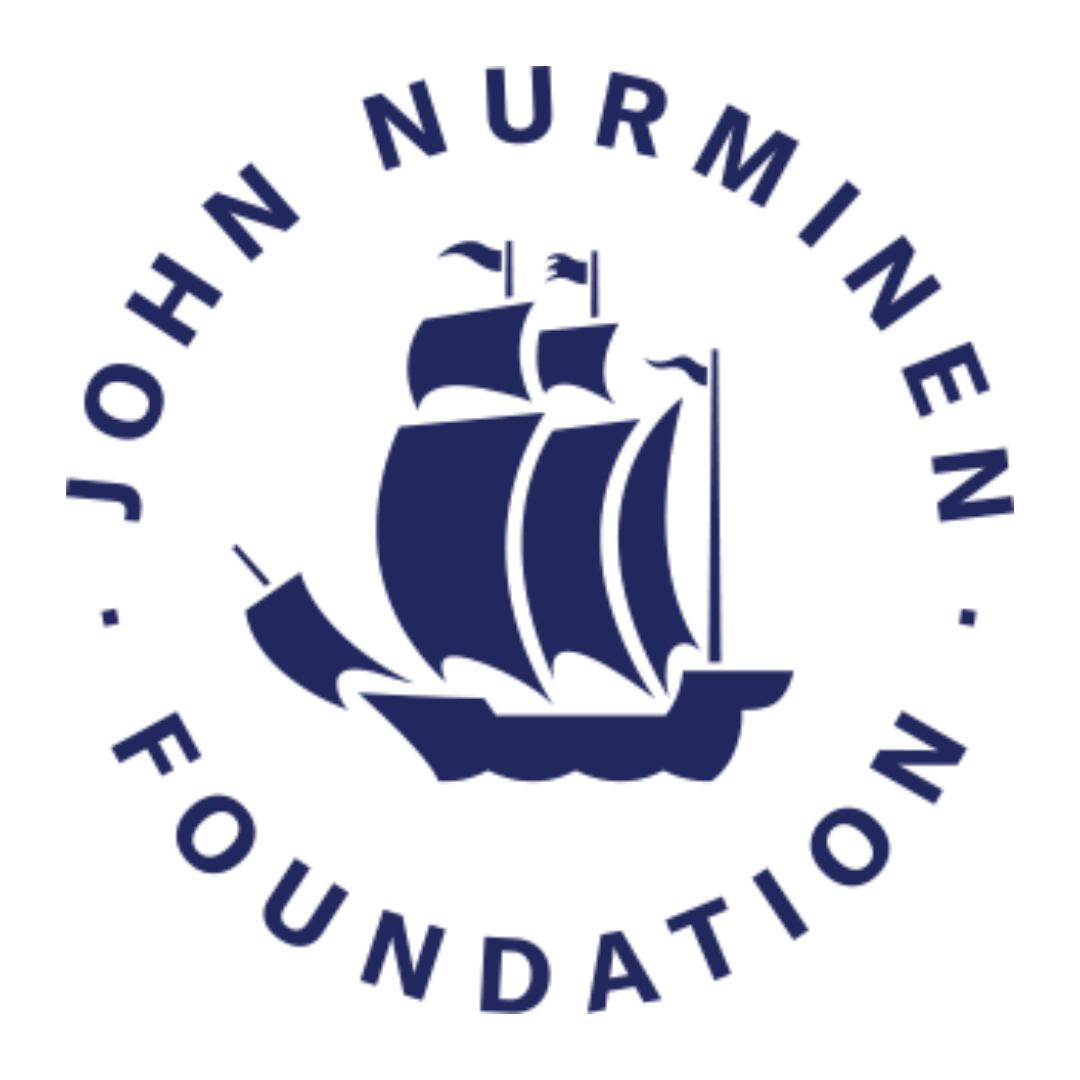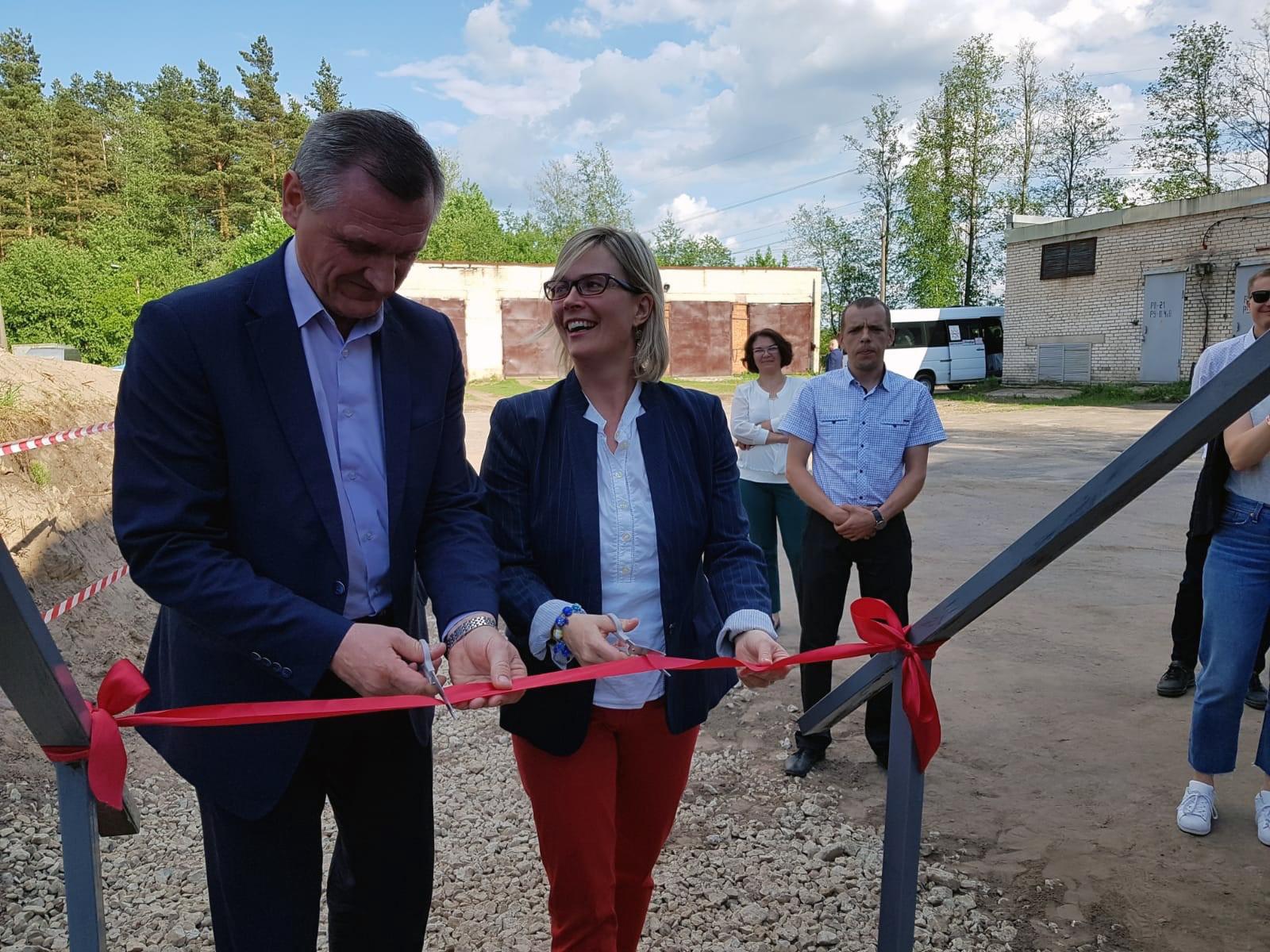Today the John Nurminen Foundation and the Kingisepp water utility celebrated their successful joint project, more efficient phosphorus removal by the city of Kingisepp’s water utility in southwestern Russia. The celebrations were also participated in by the Foundation’s partners and media representatives.
Thanks to the project, the Kingisepp water utility will begin to clean the city’s wastewaters according to the recommendations of the Helsinki Commission. The water utility committed to pay for the construction and running costs related to phosphorus removal, and to produce monthly reports of phosphorus levels in the wastewater. The project has proceeded according to plan and remained on schedule.
“The water utility has been delightfully active and proactive. They contacted us a few years ago when they had learned about projects in Gatchina and St. Petersburg, hoping to start their own project for effective phosphorus removal also in Kingisepp. We decided to take quick and cost-effective measures to reduce the annual load on the Gulf of Finland by half compared to the emissions in the Viikinmäki wastewater plant in Helsinki,” says Marjukka Porvari, who leads the Foundation’s Clean Baltic Sea projects.
The Foundation funded and acquired the equipment for enhanced cleaning, that is, the chemical tank including the pumps, feeding systems and pipes that are needed for chemical phosphorus removal. The total expenditure of the project for the foundation was EUR 170,000.
Return to Kingisepp – visit to the Fosforit fertilizer plant part of the celebration
The Foundation’s delegation also visited the Fosforit fertilizer plant owned by EuroChem, which has been the Foundation’s major partner since 2012. When a huge phosphorus emission into the Gulf of Finland was discovered at the Fosforit plant near the city of Kingisepp in 2012, the Foundation and EuroChem started cooperating.
Thanks to quick action by the plant, the emissions were cleaned quickly. Once the cleaning system was completed, the Foundation and EuroChem audited the new cleaning system. The system reduces as much as 95% of phosphorus emissions running from the Laukaanjoki river into the Gulf of Finland, being more than 3,000 tonnes a year at its highest.
The Fosforit fertilizer plant and the city of Kingisepp are also closely connected, because the plant provides employment for a large percentage of the city’s population.
The Clean Baltic Sea project continues in Russia
JNF’s first Baltic Sea project – more efficient phosphorous removal at the three largest treatment facilities in St. Petersburg – was completed in June 2011, after which the foundation has continued its work of making municipal wastewater treatment more efficient in northwestern Russia. The enhanced phosphorus removal of Gatchina, the second-largest city in the Leningrad Oblast after St. Petersburg, was completed in 2015. Last year saw the completion of the run-off water treatment system of the manure pan of Udarnik henhouse in the village of Pobeda. Enhanced phosphorus removal was also started in Vyborg in 2016, but the water utility has had some challenges with it owing to administrative changes.
“Enhancing phosphorus removal in Kingisepp is a natural extension of the Foundation’s previous projects in Russia, because Kingisepp is, after St. Petersburg, Gatchina and Vyborg, one of the largest population centres and contributors to Baltic Sea emissions in the Leningrad oblast. Thanks to the Kingisepp project, the wastewaters of 50,000 people will now be cleaned effectively before they end up in the Gulf of Finland. The Baltic Sea will become cleaner little by little,” says the Foundation’s Secretary General Annamari Arrakoski-Engardt.
The infrastructure investments in St. Petersburg, the Foundation’s and the St. Petersburg water utility’s cooperation project to implement chemical phosphorus removal, and the cleaning of phosphors emissions of the Fosforit fertilizer plant have jointly cut the phosphorus load contributing to the eutrophication of the Gulf of Finland by 75 per cent, as a result of which the waters in especially the eastern part of the Gulf of Finland have become clearer.
Founded in 1992, the purpose of the John Nurminen Foundation is to save the Baltic Sea and its heritage to future generations. The Foundation publishes non-fiction works and brings maritime knowledge available to everyone through the free Loki web service. The Foundation’s Clean Baltic Sea projects seek to improve the condition of the Baltic Sea with tangible measures that help reduce the load and environmental risks directed at the sea. The Clean Baltic Sea projects are funded by donations and public funds. www.johnnurmisensaatio.fi
More information:
Marjukka Porvari
Director, Clean Baltic Sea projects
Tel. +358 41 549 1535
marjukka.porvari(at)jnfoundation.fi
Tuula Putkinen
Communications Director
Tel. +358 400 907 809
tuula.putkinen(at)jnfoundation.fi

